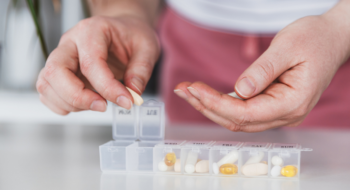Getting pregnant can be easier for some couples than others.
“There are many things that can affect your fertility,” says Sonya Harden, a certified nurse midwife who offers care at the Georgetown and Holmestown Road locations of Tidelands Health Women’s Center. “Most people can get pregnant and have a healthy pregnancy, though the speed of attaining pregnancy can vary quite a bit.”
Factors such as diet, stress and timing can impact how easy it is to become pregnant, as can health conditions such as obesity, thyroid disorders, diabetes and cardiovascular disease.
How common is infertility?
According to the Centers for Disease Control and Prevention, about 6 percent of married women ages 15 to 44 in the U.S. are unable to get pregnant after a year of trying. Both men and women can contribute to infertility.
Fertility may decline after the age of 35 in women because older women have fewer eggs, and remaining eggs may be less healthy. Other factors that can contribute to infertility include smoking, excessive alcohol use and absent periods. Low sperm production, abnormal sperm function and other conditions can impact fertility among men.
Tips
If you’re seeking to get pregnant, there are steps you can take to increase your odds and boost your fertility. Here are five tips:
- Set up a preconception counseling session with your primary care provider, certified nurse midwife, gynecologist or other qualified care provider. Together, create a healthy plan for living.
- Aim for a healthy weight. Being overweight or underweight can hinder fertility. If you seek to lose or gain weight, set realistic goals you can achieve within a defined and reasonable period of time.
- Eat well and exercise. Eat a diet rich in fruits and vegetables, lean protein, whole grains and healthy fats, take prenatal vitamins and stay active. Shoot for 30 minutes of moderate exercise at least five days a week. This goes for both mom- and dad-to-be.
- Monitor your menstrual cycle so you can determine ovulation. There are apps you can download to help you track your cycle or use a calendar to keep up with your period. Having sexual intercourse during your fertile window increases your chances of conceiving.
- Manage or try to avoid stress when trying to conceive. Stress can trigger the release of cortisol in your body, which can make it more difficult to conceive. Try meditation, yoga, or exercise to relieve stress.
If you aren’t successful getting pregnant within a year, talk to your provider, who can help you identify the cause of your difficulties and discuss strategies or treatment options that may help.
“We see you, we hear you and we want to help,” says Harden, who has extensive experience helping women on their fertility journeys. “You are not alone. There are many resources available to assist you. Infertility is such a difficult thing to have to live with, but you will come out the other side, and we will be here when you do.”

Sonya Harden
Certified Nurse Midwife, Tidelands Health OB/GYN
Call to Schedule
Bio
Tidelands Health certified nurse midwife Sonya Harden practices at the Georgetown and Holmestown Road locations of Tidelands Health Women’s Center. She is accepting new patients.
Learn MoreMedical Education
Education
Western Kentucky University
University of Cincinnati, Nurse Midwife Studies
Meet the Expert
Sonya Harden
Call to Schedule
Tidelands Health certified nurse midwife Sonya Harden practices at the Georgetown and Holmestown Road locations of Tidelands Health Women’s Center. She is accepting new patients.






